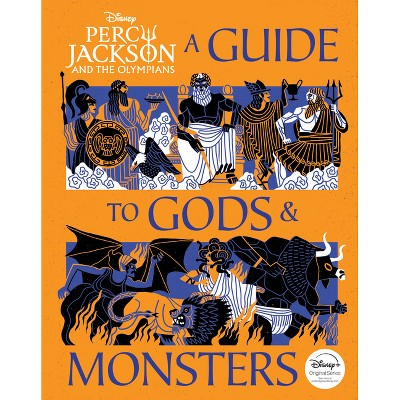Sponsored

Kornblith and His Critics - (Philosophers and Their Critics) by Joshua Dipaolo & Luis R G Oliveira (Paperback)
Out of Stock
Sponsored
About this item
Highlights
- A wide-ranging engagement with one of contemporary epistemology's most influential thinkers Hilary Kornblith is one of the world's leading philosophers theorizing about knowledge and related issues.
- About the Author: Joshua DiPaolo is Associate Professor of Philosophy at California State University Fullerton.
- 352 Pages
- Philosophy, Epistemology
- Series Name: Philosophers and Their Critics
Description
About the Book
"This volume engages critically and substantively with Kornblith's decades-long development of a scientific epistemology. It collects 16 critical essays written specifically for this volume along with an essay by Kornblith himself in which he replies to that sustained criticism. Additionally, the volume includes a substantial introduction by the editors detailing, categorizing, and contextualizing Kornblith's enduring contributions to epistemology, spread across 6 books and nearly 100 journal articles and book chapters."-- Provided by publisher.Book Synopsis
A wide-ranging engagement with one of contemporary epistemology's most influential thinkers
Hilary Kornblith is one of the world's leading philosophers theorizing about knowledge and related issues. A key figure in the naturalized epistemology tradition, Kornblith integrates traditional empiricism with contemporary cognitive science, rejecting inward-looking, first-person approaches in favor of a third-person, scientifically grounded perspective on mind and knowledge.
Kornblith's contributions have reshaped debates about the nature and structure of knowledge, justification, and epistemic normativity; he has challenged the legitimacy of conceptual analysis and the reliability of reflection and reasoning, besides charting and defending a mature and self-consciously naturalistic philosophical methodology. By exploring this terrain, Kornblith and His Critics offers an in-depth examination of some of the most unique and innovative work in the last 40 years of anglophone epistemology.
This volume brings together fifteen original essays by leading philosophers engaging with Kornblith's work, each written specifically for this collection. Organized into three main thematic sections - Knowledge and Justification, Reflection and Inference, and Naturalism and Methodology - the collection systematically traces and tests the implications of Kornblith's work across key debates. The volume also includes a substantial reply from Kornblith, offering his own response to the critical challenges raised by the incisive contributions.
Kornblith and His Critics is ideal for graduate and advanced undergraduate philosophy students, especially those taking a variety of courses on epistemology and philosophical methodology. Key features include:
- A complete and detailed overview of how Kornblith's work compares with, and contributes to, key debates in epistemology.
- Cutting-edge engagement with the foundations, nature, and future of naturalized epistemology.
- Thorough discussion of core issues in epistemology: from the nature of knowledge, justification, and inference to the epistemic value of reflection and conceptual analysis.
- A lengthy and unique reply by Hilary Kornblith, directly addressing the critical challenges raised by the incisive contributions.
- A systematic and thematic structure for easy integration into graduate and upper-level undergraduate courses.
Kornblith and His Critics is a vital resource for researchers and instructors within philosophy programs in both MA and PhD curricula, as well as general readers interested in post-analytic and empirically-informed philosophy.
From the Back Cover
KORNBLITH AND HIS CRITICS
Hilary Kornblith has played a pivotal role in shaping contemporary epistemology, defending a naturalistic approach that places empirical science, not introspection or conceptual analysis, at the heart of our understanding of knowledge. Rejecting first-person methods in favor of third-person investigation, Kornblith challenges many of the assumptions that have historically guided epistemological inquiry. His work has been central to key debates about the nature of justification, the reliability of reflection, and the role of normativity in epistemic evaluation.
Kornblith and His Critics brings together fifteen original essays by leading philosophers critically engaging with the full range of Kornblith's thought. This landmark volume is organized thematically across three major areas--knowledge and justification, reflection and inference, and naturalism and methodology--providing a structured, accessible approach to both Kornblith's work and its philosophical implications. The editors' introduction presents an accessible overview of Kornblith's influential contributions, illuminating for both specialists and newcomers alike. Then each chapter offers fresh insight into central epistemological questions, culminating in a substantial response from Kornblith that clarifies, defends, and further develops his views.
Kornblith and His Critics is an essential resource for students and scholars working in epistemology, philosophy of mind, or philosophical methodology. It is well-suited for graduate and advanced undergraduate courses focused on naturalized epistemology or the evolution of analytic philosophy after Quine, and a valuable resource for general readers interested in the intersection of philosophy and cognitive science.
About the Author
Joshua DiPaolo is Associate Professor of Philosophy at California State University Fullerton. He specializes in ethics and epistemology, with research focused on epistemic dependence, extremism, and evidential standards. His work has appeared in Oxford Studies in Epistemology, Philosophical Studies, and Synthese.
Luis R.G. Oliveira is Associate Professor of Philosophy at the University of Houston. His areas of expertise include epistemic normativity and the philosophy of religion. He is the editor or co-editor of Common Sense Metaphysics, Propositional and Doxastic Justification, and Externalism About Knowledge.
Shipping details
Return details
Trending New Books











